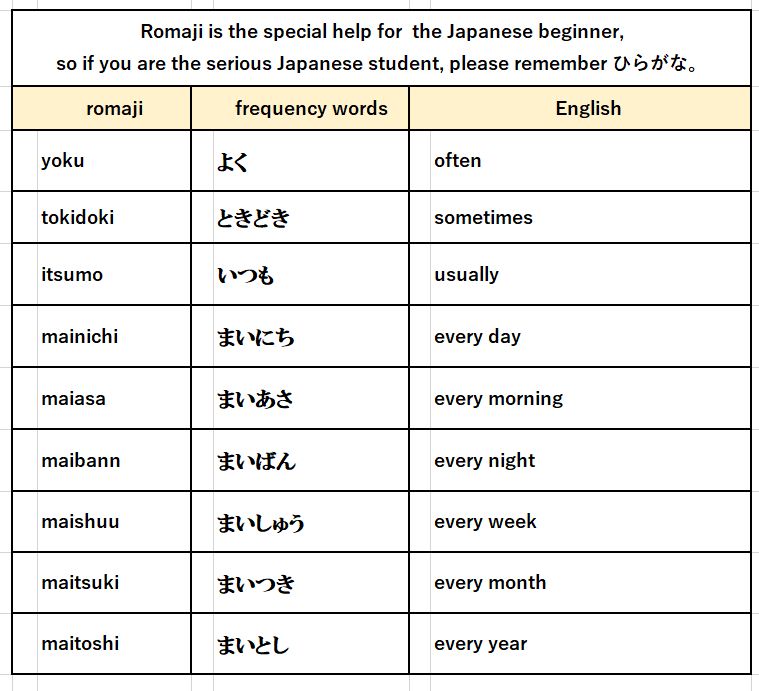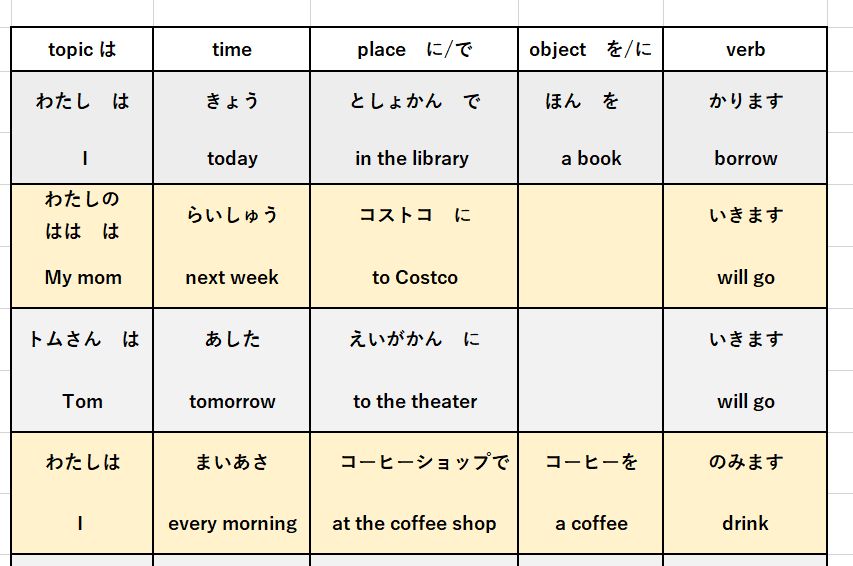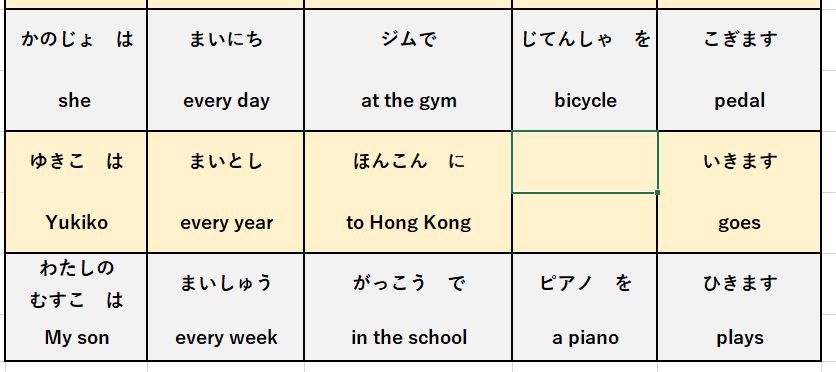Japanese sentences are flexible in the arrangement of elements that be indicated in them. The following sentences are typical sentences, but there are other arrangements of noun-particle sequences are possible,too.

広告


広告
When you say the time more concretely, for example, at 5:30, at 9:45, etc.., you should put particle (に)after the time.
Examples:
I usually go to school at 8:00 a.m.
わたしは いつも ごぜん はちじに がっこうに いきます。
I usually get up at 5:45 a.m.
わたしは いつも ごぜん ごじ よんじゅうごふん に おきます。(to get up= おきます)
==================================================================================
Drills: Translate in Japanese.
① at 8:23 ② at 7:59 ③ at 1:56 p.m. ④ at 4: 44 p.m. ⑤ at 6:34 a.m.
⑥ at 3: 15 p.m. ⑦ at 9: 17 a.m. ⑧ at 11:20 a.m. ⑨ at 5:48 a.m. ⑩ at 10:50 a.m.
==================================================================================
![]() Daily activities:
Daily activities:
to wake up (おきる/ おきます)
What time do you usually wake up?
あなたは いつも なんじに おきますか?
I usually wake up at 9:30.
わたしは いつも くじはん に おきます。
Drills:
My son, Eric woke up at 6:45 yesterday.
( )
Yukiko doesn’t wake up at 7:30. ( )
My daughter didn’t wake up at 10 a.m. yesterday.( )
to drink (のむ / のみます)
What do you drink every morning?
あなたは まいあさ なにを のみますか?
I drink a coffee every morning.
わたしは まいあさ コーヒーを のみます
Drills:
I drunk some red wine the day before yesterday.
( )
He doesn’t drink a wine. ( ) My mother didn’t drink some tea. ( )
the day after tomorrow ( )
to go (いく / いきます )
My parents often go to Costco.
わたしの りょうしんは よく コストコに いきます
Do you go to Costco?
あなたは コストコに いきますか?
Yes, I sometimes go to Costco.
はい、わたしは ときどき コストコに いきます。
Drills:
We went to Japan this September.
( )
I don’t go. ( )
She didn’t go. ( )




